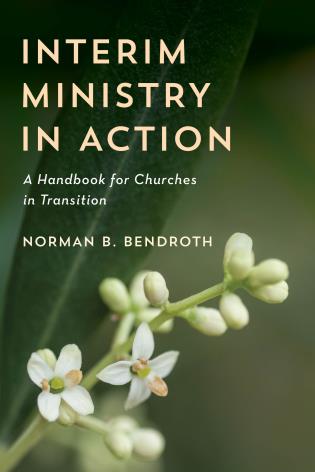
Clergy know the long periods of silence between contacts from a pastor search committee. Congregation members know the even-longer period between substantive reports about the activities of a search committee. The members of such committees are very, very busy — meeting weekly, reading, making calls.
Many members of the search committees I have known report that serving is one of the spiritual high points of their lives. There are some simple reasons for this. The mission of the committee is important and clear: recommend a pastor. The entire committee starts the process at the same time and finishes at the same time. Team development literature indicates that a clear, common mission and task greatly helps a group become a cohesive team. This is markedly different from the experience of serving on the typical church committee.
These mechanical aspects don’t fully explain the significance of this experience. Searching for a pastor is sacred work. In most traditions, the opportunity comes to only a few, and then only once in a lifetime of faithful membership.
- My colleague Kelly Ryan completed her service on a search committee this summer. She helps us consider how to set up other committees’ work to be meaningful.
- For many Weekly readers, the experience of talking with a search committee leads to rejection. I have been interviewed by six pastor search committees over the years and only been called by one. (I am not counting those that rejected me without ever talking to me.) It can help those on the candidate side of the table to consider what the committees really want to know. A few years ago, I realized that most of the time, congregations are discerning answers to questions like “Can this pastor love us?” and “Is this pastor competent?”
- One of the challenges about guiding a pastor search process is that the details differ significantly between denominations. In some, the new pastor is appointed with a conversation or two between a few lay leaders and the denomination. In others, the governing board members choose a pastor from a list, but don’t talk to the pastor unless the candidate requests a conversation. No matter the denominational process, however, a change in pastors deserves attention. The Alban Institute was founded on insights about the dynamics of pastoral change, and wisdom about that experience has been harvested for years by interim ministry practitioners. Norman Bendroth has put together insights from practitioners in this book.
Resources
Falling in love again — with a congregation
By Kelly Ryan
Searching for a pastor
By David L. Odom
Before you go…
Alban is in the midst of its own transition, as we have been searching for a new editor, an experienced pastor who is deeply interested in the challenges of leading congregations.
In the next Weekly, you will hear from this new Alban editor, Prince Rivers. The Rev. Rivers has been a pastor for more than 20 years. He leads the Union Baptist Church in Durham, NC, which is his fourth congregation. In 2021, he completed years of intense doctoral work and was awarded a Ph.D. in Leadership Studies from North Carolina A&T. In addition to pastoring Union, Rivers is launching a consulting enterprise and teaching at Duke Divinity.
When I approached Rivers about working on the Alban Weekly, he expressed eagerness to reflect with us about the questions congregations face these days. After the Labor Day holiday, you will hear from Rivers on September 13. He will frame the newsletter with insights from the daily work of a pastor. We will invite other pastors to join in occasionally curating resources that can benefit the Alban network. Alban will continue to offer resources to help congregations, including Alban books. You can reach Rivers and the others whose work supports Alban at alban@duke.edu.
I am grateful for the dedication of Alban readers to congregations — and even more grateful to those congregations for their gifts to the world.
Blessings,
David L. Odom
Director, Alban at Duke Divinity




